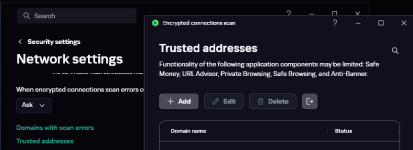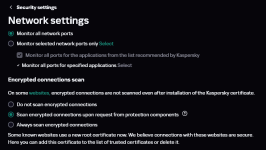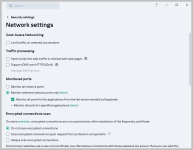One of the main "issues" I have had with Kaspersky is that it always slows down page loading. It's a small difference, but noticeable, and sometimes even annoying, since page loading doesn't behave as snappy as with Defender or Eset. However, after recently experimenting with HTTPS scanning disabled, Kaspersky behaves just as fast as if it wasn't there.
But what is the cost of having that disabled? Can other of Kaspersky's modules make up for losing that layer of defense? Anyone has experimented this before?
But what is the cost of having that disabled? Can other of Kaspersky's modules make up for losing that layer of defense? Anyone has experimented this before?



